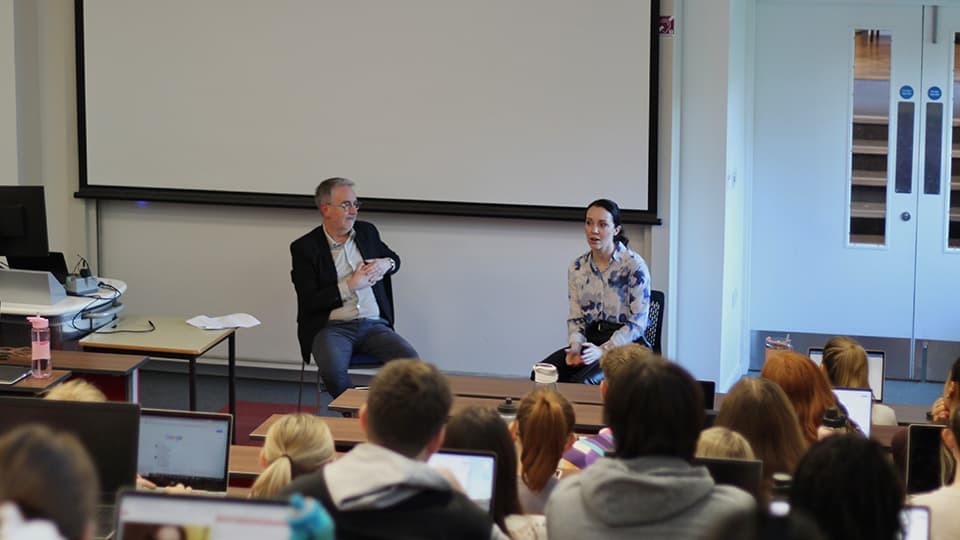Organised by Professor Andrew Chadwick, it featured Stef Reid MBE – triple Paralympic medallist, five-time world record holder, and broadcaster – as a guest speaker. Discussion ranged across elite athletics, reality television and social media authenticity.
Reid has had a notable and varied career, moving from elite athletics to roles as a sports broadcaster and Vice President for The Leprosy Mission UK. She was the first amputee to walk the runway at London Fashion Week. She lives locally and regularly trains at the Loughborough campus.
Describing what she said was her “unusual” route into world athletics, Reid spoke eloquently about her upbringing, the events that shaped her journey through sport and beyond, and the changes she has witnessed first-hand in the media industries in recent years.
Discussion focused on mainstream media underrepresentation of people living with disabilities, the importance of being able to speak openly but respectfully online, and how to balance authenticity with the “edited, intentional way of communicating” Reid said a social media profile increasingly requires.
In a wide-ranging Q&A session afterward, students asked Reid about her recent experiences of appearing on reality TV shows such as Celebrity MasterChef and Dancing on Ice, the ongoing debate about how these formats impact participants’ and audiences’ mental health, and how broadcast production increasingly integrates with social media as well as the tabloid news cycle.
Speaking about her experience as a guest speaker, Stef said: “Social media was never a part of my university education because it didn’t exist in 2006! But it’s at the point now where its power and reach extend to into many aspects of our careers and private lives: it can transform an athlete’s commercial earnings; it can have serious implications for our mental health; it can have a huge impact on democracy.
“It’s branded as fun, easy, casual entertainment, when in reality it’s about money and power. That doesn’t necessarily make it a bad thing. But it does mean it deserves careful consideration and understanding. It’s great that a course exists where social media can be picked apart and considered from all perspectives.”
Professor Andrew Chadwick added: “This session was a unique opportunity to explore several big contemporary themes in how reality TV and social media are reshaping public perceptions of celebrity, power and influence. I’d like to thank Stef for taking the time to visit and share her thoughts in this highly stimulating discussion.”
A student in attendance also commented: “Stef’s talk was really engaging and thought provoking. I’ve always known that Love Island was edited and to a degree ‘fake’, but Stef really opened my eyes to how shows like Dancing on Ice do the same thing. I’d never thought about how they construct a narrative and probably have a winner in mind.”
